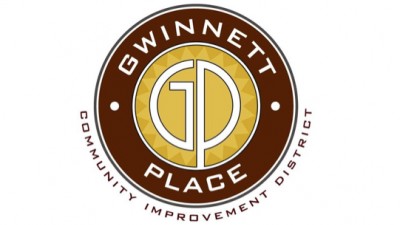What Does Equitable (Re)Development Look Like? Gwinnett County Has A Plan For Gwinnett Place

After years of stagnation at the Gwinnett Place Mall, the people and government of the Southeast’s most diverse county are in the driver’s seat. Gwinnett County closed on its purchase of the Gwinnett Place Mall in April, and a few weeks ago, the Gwinnett Place Community Improvement District received a $220K grant from the Atlanta Regional Commission to fund a master plan that will re-envision the heart of Gwinnett.
Now, the watchword for local officials and residents alike is equitable development. Gwinnett County Board of Commissioners Chairwoman Nicole Love Hendrickson introduced the Gwinnett Place Mall Redevelopment Equity Plan, which will work to ensure that the future of the mall site is one that cultivates inclusion, equity, diversity and fairness for everyone who lives, works or plays in Gwinnett.
But what does equitable redevelopment actually mean? And how will it affect the decisions that are made for the future of Gwinnett Place?
“Equity means continuing to expand the vibrant cultural mosaic of Gwinnett County and providing economic opportunities for all to thrive, no matter their socioeconomic or ethnic background,” said Joe Allen, executive director of the Gwinnett Place Community Improvement District. “It means ensuring, as the mall site is transformed, that the effort does not exclude or displace Gwinnett County’s marginalized communities.”
Workforce Housing
At the top of the list for any equitable development plan is workforce housing. As the area grows and evolves, Allen said, the redevelopment of the Gwinnett Place site could provide attainable and workforce housing for residents, ensuring that teachers, restaurant workers and public safety professionals who serve the Gwinnett community can also live in the transformed heart of Gwinnett.
In other communities around the country that have reclaimed their dead and dying malls, affordable housing has been an important part of the mixed-use recipe. The Highland Mall in Austin, Texas, was redeveloped into a learning center by Austin Community College, and the Westminster Mall outside of Denver, is being redeveloped into a vibrant mixed-use district with plans to have about 20% workforce housing included in the entire project.
“At these redevelopments, you can’t tell the workforce housing units from the market rate,” Allen said. “We want to follow those examples and other guiding principles to provide a variety of residential price points for the future workforce of Gwinnett.”
Community Input
An equitable future for Gwinnett Place means soliciting input from every part of the local community. Gwinnett County is home to some of the largest international communities in the Southeast, and the redevelopment process will strive to sustain the diverse fabric of Gwinnett Place’s makeup.
“Sometimes when communities see large-scale redevelopments like this, it can push out local entrepreneurs and longtime business owners, and that’s exactly what we’re working to avoid,” Allen said. “We will work together to engage stakeholders and the surrounding community to understand how to bring to life a destination that is truly reflective of the diverse community’s needs. This process will be rooted in engagement and enlist grassroots organizations to extend our reach to include every community surrounding the mall site.”
Allen said that the government and GPCID will continue to consult with residents, commercial property owners, local business owners, chambers of commerce and trade groups that represent the full fabric of the local community to help ensure that everyone thrives through this transformational redevelopment of the Gwinnett Place Mall site.
Connectivity
“Part of equitable development means tying the Gwinnett community more closely together through strong transportation options and ensuring all residents have access to residential, leisure and job opportunities, regardless of whether they own a car,” Allen said.
In the past decade, GPCID has pushed for and overseen the construction of 17 miles of sidewalk, crosswalks and safer, more connected pedestrian access across Gwinnett Place as a step to increase connectivity.
“It’s gratifying to see visitors, who stay at any of the 20 hotels in the Gwinnett Place area, out jogging along our streets in the morning or walking to the local restaurants because that’s such an economic multiplier for the community,” Allen said. “But it’s also so gratifying to see that our own residents can walk to the supermarket or even to work if they so choose. With the mall redevelopment, we will continue our efforts to make Gwinnett Place a more walkable destination.”
Infrastructure
Gwinnett is projected to become Georgia’s most populous county by 2030. Building more infrastructure for walkability and investing in mobility options are going to be even more important as added residents move to the Interstate 85 corridor, Allen said.
But the community will also have to prepare for more intensive use of the Gwinnett Place area. Currently, more than 40% of the CID’s land is taken up by parking lots. As parking is replaced by businesses, housing, offices, green space, trails or other uses, the strain on the area’s infrastructure will increase, Allen said, but Gwinnett County has been doing the groundwork to prepare. An upgrade to the Gwinnett Place Mall site sewer system and nearby retention ponds will ensure that whatever new developments are put in place at the mall site, the infrastructure will be ready to handle the greater density.
“Before anything can happen on the surface, we have to make sure that all the work is done in advance underground,” Allen said. “There might still be a dead mall at the center today, but we’re setting the stage for its redevelopment, and we want to bring everybody along.”
This article was produced in collaboration between Studio B and the Gwinnett Place Community Improvement District. Bisnow news staff was not involved in the production of this content.
Studio B is Bisnow’s in-house content and design studio. To learn more about how Studio B can help your team, reach out to studio@bisnow.com.

